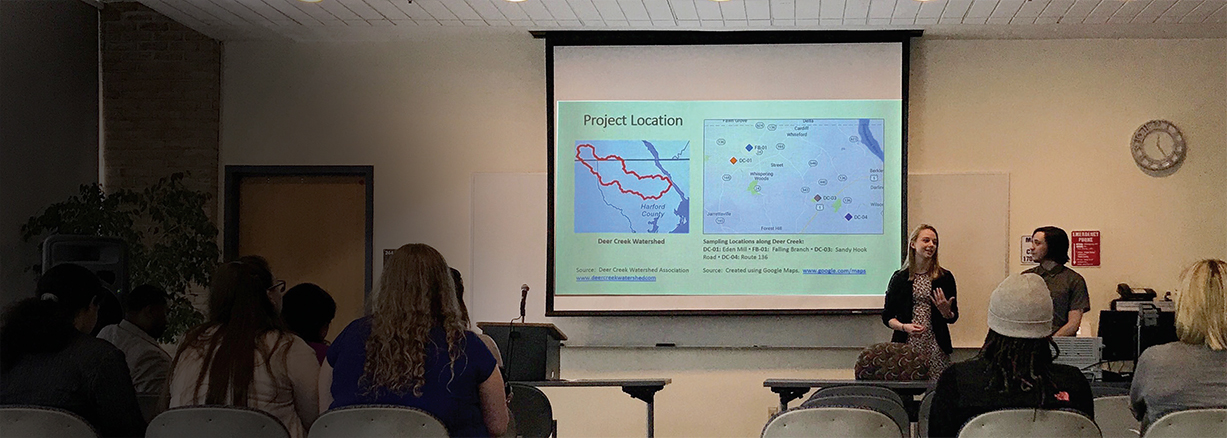
AREA OF INTEREST:Communications | Humanities
Students who want to pursue majors within this interest area tend to be expressive, independent, less structured or predictable. They are interested in foreign languages, architecture, history, media and graphic design and are intrigued by patterns and finding connections between disparate things. They are able to synthesize information to tell stories through words, photos, video, and graphics. Sound like you? Explore the programs of study that Harford Community College offers in this interest area.
“The work I’m doing with Owl Magazine . . . researching, conducting interviews, composing the article(s) – it’s all part of the career description I hope to have.
And, getting that exposure now will have me ready for potential opportunities after graduation.”
GET INVOLVED
This interest area provides students with the most options for getting involved on campus. Harford's Owl Magazine is a nationally-recognized student run magazine that offers credit and field placement work in advertising, writing, social media, video production and more, and the College radio station WHFC 91.1 FM is the perfect place for communications majors to learn both on- and off-air. History majors are fortunate to have access to Hays Heighe House where they can participate in research for curated exhibits, workshops and seminars throughout the year. Local internships and field placement work at places like the Havre de Grace Maritime Museum round out these programs and grants such as a recent one from the National Endowment for the Arts allow for large, multi-year research projects for students.
Work Options
Although immediately entering the workforce is not typical in these fields, those with a two-year degree may gain entry level employment in areas like social media, PR or writing. Internships and field study are valued and provide hands-on insight into what is available for future employment.
Transfer Options
Most who choose a major in this area of interest choose to transfer to a four-year institution—and often go on to earn a Master's degree. They can teach, research, write and explore as a degree in one of these areas provides a student with options in several diverse fields. New media, for instance, spans all careers as often does writing and marketing. History and public history provide options as curators, researchers, writers, historians and archivists. Programs in this interest area provide a well-rounded education that all employers seek.

